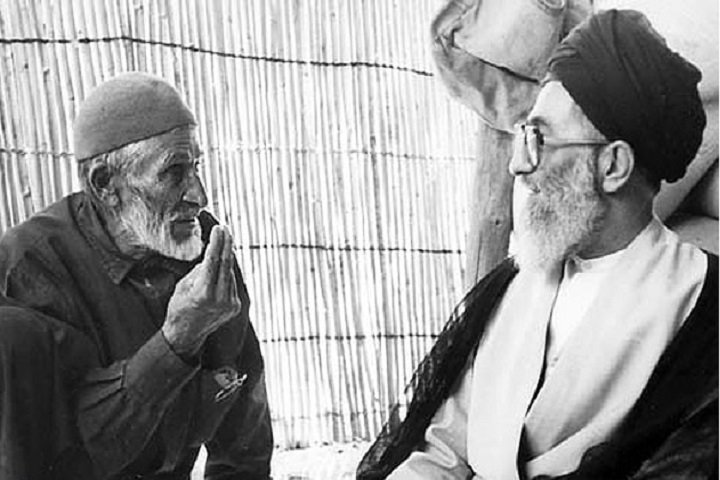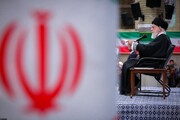Hawzah News Agency-Our magnanimous Imam (r.a.) changed the path, thus bringing about a profound transformation. He changed the path of the people of Iran. He changed the tracks we were on. He moved us towards lofty goals. These goals- that led us with the help of the Revolution and the Imam of the Revolution (r.a.) and that guided the Iranian society towards this direction- are extraordinarily important. The summary of all these goals is the authority of God’s religion. The authority of God’s religion means social justice in the real sense of the word. It means uprooting poverty, ignorance and oppression. It means preparing a collection of Islamic values. It means uprooting social detriments. It means providing physical, moral and spiritual health, and scientific progress for the country. It means providing national dignity, national and Iranian identity and international power. It means activating the capacities that God has given this land. All these definitions are included in the authority of God’s religion. It was Imam (r.a.) who moved us towards this path. This is the exact opposite of the path towards which we were being dragged during the time of taghut.
Statements made during a public address on the 27th Demise Anniversary of Imam Khomeini (r.a.); June 3, 2016.
On the basis of Imam Khomeini’s (r.a.) statements, the issue of the people, the independence of the country, piety and commitment to Islamic principles, fighting against arrogance and bullying, Palestine, the people’s living conditions, and attention to the poor and eliminating poverty, are the main guidelines of the Revolution from whose combination the geometry of the Revolution is acquired.
Statements made during a meeting with members of the Supreme National Security Council; February 4, 2016.
Imam Khomeini (r.a.) was an ardent advocate of the weak and underprivileged classes. He used to reject economic inequality in a very serious and severe way. He used to reject aristocracy with bitterness. He was an advocate of social justice in the true sense of the word. Advocating underprivileged classes of society was perhaps one of the issues that he repeated the most in his speeches. This was one of his clear and definite guidelines. Everyone should try to uproot poverty. Everyone should try to liberate underprivileged classes from poverty. Everyone should help them as much as they can. On the other hand, he used to warn the officials of the country about living the life of a courtier. This has also been mentioned in the Holy Quran: "And you dwelt in the dwellings of men who wronged their own souls" [The Holy Quran, 14: 45]. He used to prevent everyone from living the life of a courtier.
He used to stress that officials should have trust in the loyalty of underprivileged classes. He used to repeat many times that it is the residents of slums, the poor and underprivileged classes who fill the scenes despite their poverty. They do not even complain and they participate in dangerous arenas. On the contrary, those who were well-to-do would in fact complain more if there was a problem in a certain area. From the viewpoint of Imam Khomeini (r.a.), the loyalty of middle and underprivileged classes was an outstanding phenomenon and he placed great emphasis on it. He also stressed the necessity of using public funds in the correct way and avoiding extravagance. This was another fundamental guideline that Imam (r.a.) had: the issue of administering social justice, advocating underprivileged classes, avoiding an aristocratic lifestyle and taking action in this direction.
Statements made during a public address on the 26th demise anniversary of Imam Khomeini (r.a.); June 4, 2015.



Your Comment